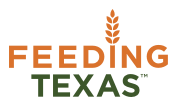And we’re off! Every two years, the Texas Legislature convenes for a 140-day regular legislative session, during which our legislators set the state budget and enact laws to provide for the health, welfare, education, environment, and economic well-being of the citizens of Texas. This year, the 86th Legislative Session runs from January 8 to May 27, and topics like school finance and property tax reform are poised to take center stage.
At Feeding Texas, we strive to lead the public conversation needed to solve hunger in Texas. Our priorities for this Legislative Session focus on the most vulnerable among us:
• Senior Hunger: Hunger and food insecurity are serious issues facing Texas seniors. With 8.9% at risk for hunger, Texas has the fourth-highest rate of senior food insecurity in the nation. Food insecure seniors also face an increased risk for chronic health conditions: 53% are more likely to report a heart attack and 52% are more likely to develop asthma. One of the most cost-effective ways to improve the health and well-being of older Texans is to ensure that seniors have reliable access to good nutrition. Texas can achieve this goal by adopting these simple and cost-effective steps: simplify the application and recertification process for the Supplemental Nutrition Assistance Program (SNAP), reach out to seniors on Medicaid to make them aware of their eligibility for SNAP, and ensure seniors don’t have to choose between modest savings and the ability to afford good nutrition.
• Improving Access to Produce: Two-thirds of the people we serve have poor nutritional health due to limited financial resources. Fortunately, a long-standing partnership with the Texas Department of Agriculture (TDA) has allowed our network of food banks to purchase healthy produce from Texas farmers to help low-income families improve their diets. As a result of this grant, the 3.5M Texans we reach are consuming more fresh fruits and vegetables, which will ultimately reduce state Medicaid costs associated with treating diet-related illness. Feeding Texas hopes that the legislature will double down on our success by increasing our grant, thereby ensuring a consistent supply of fresh produce for all our clients across the state, particularly in rural areas and food deserts where access to healthy food is limited.
• Disaster Relief and Preparedness: Feeding Texas and our statewide network of food banks were an integral part of the response to Hurricane Harvey. Although Harvey impacted six of our food banks directly, every food bank in our network pitched in with food and other supplies. We fed thousands of Texans in the days and weeks immediately following Harvey, worked with state and local officials throughout the response phase, and served as a central point of contact and information hub. Feeding Texas commends the Legislature for putting disaster preparedness at the forefront of this Legislative Session and continues to look for ways in which we can help increase the state’s capacity to respond to future disasters.
